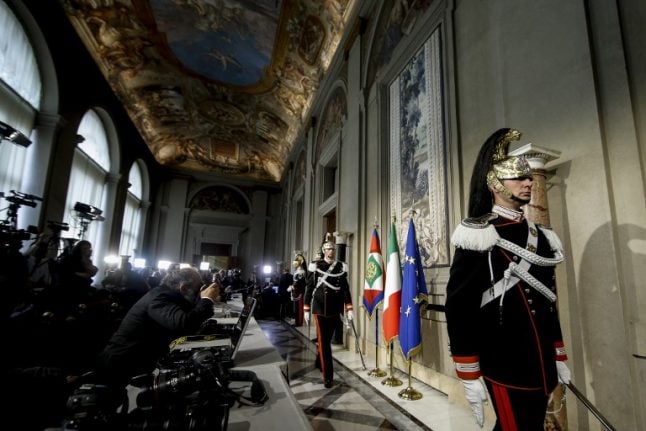The March 4th polls left a right-wing coalition led by the far-right League party in the driver's seat with 37 percent of the vote.
Seeking to ward off the prospect of a caretaker cabinet, League leader Matteo Salvini on Friday proposed going into a temporary government with the second-placed Five Star Movement (M5S) until December. This would give parliament time to pass a new electoral reform and adopt next year's budget for the eurozone's third-largest economy. He said fresh elections could then be held early next year.
The anti-establishment M5S, led by Luigi Di Maio, garnered 32 percent in the election, while the leftist Democratic Party won 19 percent.
The three parties will be first in line to speak to Mattarella, followed by smaller parties and the two speakers of parliament.
Di Maio said Sunday that he would forgo the premiership as a gesture to the League.
“If we really have to shake things up… I say to Salvini, 'Let's pick a head of government together',” Di Maio said on a TV talk show.
READ ALSO:
- Understanding Italy's Five Star Movement
- An introduction to Italy's League
- The 'who, what, and why' of Italy's Democratic Party

Silvio Berlusconi, Matteo Salvini and Luigi Di Maio depicted as Caravaggio's Cardsharps in Rome graffiti. Photo: Fanny Carrier/AFP
But the League, whose coalition includes Silvio Berlusconi's Forza Italia party, remains at loggerheads with M5S over the flamboyant former prime minister's possible role. Di Maio has demanded that Salvini dump the 81-year-old media magnate, whom the M5S regards as the symbol of political corruption, but Salvini insists he will not break up a coalition.
Officials of the right-wing coalition met Sunday evening in Rome to hammer out a joint strategy.
Several have demanded that Mattarella designate Salvini as prime minister and allow him to find the few dozen MPs needed from smaller parties to form a majority in parliament. But press reports say Mattarella wants guarantees.
He is expected to name a caretaker government, similar to that of economist Mario Monti from 2011 to 2013, that would restore Italy's role on the world stage and run the country at least until the 2019 budget is passed. He is thought to be looking for a neutral but competent figure, perhaps a woman, with press speculation running wild.
But both the League and M5S are dead set against such an alternative, with Di Maio saying he would support fresh elections as soon as June or July.
Lina Palmerini, analyst at the business daily Il Sole 24 Ore, said Mattarella has few options, warning: “If parliament rejects the president's government, the situation will be very difficult.”
Pollster Lorenzo Pregliasco said voter surveys suggested new elections would not change the balance of forces. “No one will win a majority.”
READ ALSO: The Local's introductory guide to Italian politics
By Fanny Carrier



 Please whitelist us to continue reading.
Please whitelist us to continue reading.